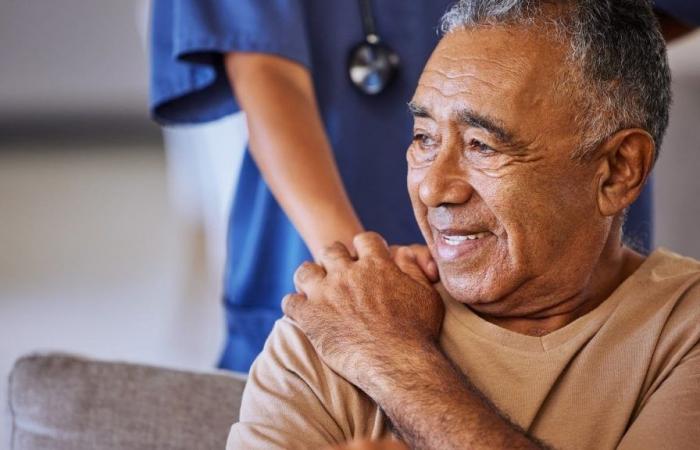Two thirds of cancers diagnosed and recorded each year affect individuals aged over 65. Although cancer among the elderly is increasing, treatments and care are improving. Here are the most common cancers among seniors.
Cancer is a disease which affects all age groups. According to the National Cancer Institute, 115,158 people aged 65 and over died from it, or 75.3% of deaths per case. Each year, 140,940 cases of cancer are diagnosed in men compared to 108,351 cases in women. Worldwide, the distribution of this scourge is heterogeneous and is linked to thelife expectancy. What are the most common cancers among seniors and what are their causes?
Cancers: here are the most common in people over 65
In humans
In men over 65, as in all ages in the male population, the most common cancer is that of the prostate. This rarely occurs before age 50 and the median age at screening is 69, according to 2018 data from the National Cancer Institute. About 66% of prostate cancer cases are diagnosed in men over 65 years old. Then we have that of lung Second on the podium for the most common cancers in men, the next is colorectal cancer. If the latter is diagnosed early, it is very treatable. Hence the importance of a early detection.
In women
According to epidemiological data from the National Cancer Institute, the most common case in women aged over 65 is breast cancer, i.e. 28,799 cases in 2017. The median age at the time of screening or of diagnostic is 64 years old. It is also the one that causes the most deaths among elderly women, i.e. 8,653 cases of death per year. As for the other most common cancers in women, they are the same as in men. However, the cancer colorectal with 15,376 cases comes before that of the lung with 9,328 cases. The three types listed here are responsible for 43.2% of deaths among women in this age group, reveals Current wife.
Symptoms to watch out for in the elderly
Doctors recommend not trivializing any symptom. It is a myth to believe that cancer in older people progresses slowly. We list some general signs which should alert you. So, if you feel persistent fatigue, the appearance of a lymph node, redness under the arm, in the cervical region or in the groin, the appearance of blood in your urine or in your urine, a change voice, persistent cough, persistent hoarseness, sudden and unexplained weight loss or a change in the shape of your breast, contact your doctor immediately.
Cancers: why are older people more at risk?
Age and certain pathologies
Generally speaking, cancer is essentially an age-related pathology. In fact, only 1% of people aged under 40 are affected by advanced stage cancer, while it is increasing among those over 65. With age, the biological mechanisms whose role is to protect against cancer cells degrade and eventually multiply to form a malignant tumor then metastases. Certain pathologies also worsen symptoms. However, age is not the only risk factor among older people.
Biological factors and lifestyle habits
About 50% of cases of cancers are hereditary. From birth, genetic mutations are already present and are found in all cells of the body. This does not necessarily mean that there will be cancer, but the risk of developing it is higher. On the other hand, poor lifestyle habits can also increase the risk of the disease. Excessive consumption of alcohol, smoking, being overweight, poor diet, obesity, lack of activity, excessive exposure to UV rays and a sedentary lifestyle are also factors responsible for the increase in cancers.
Environmental factors
Pollutants are responsible for 4 to 8.5% of cancer cases. These include pollutants such as asbestos, pesticides, ionizing radiation and even air pollution. As to infectious agents, they are the cause of nearly 4% of cancers in France. Hepatitis B and C viruses, papillomaviruses, HIV and the Helicobacter pylori bacteria are the main infectious agents that increase cancer risks whether in men or women.






